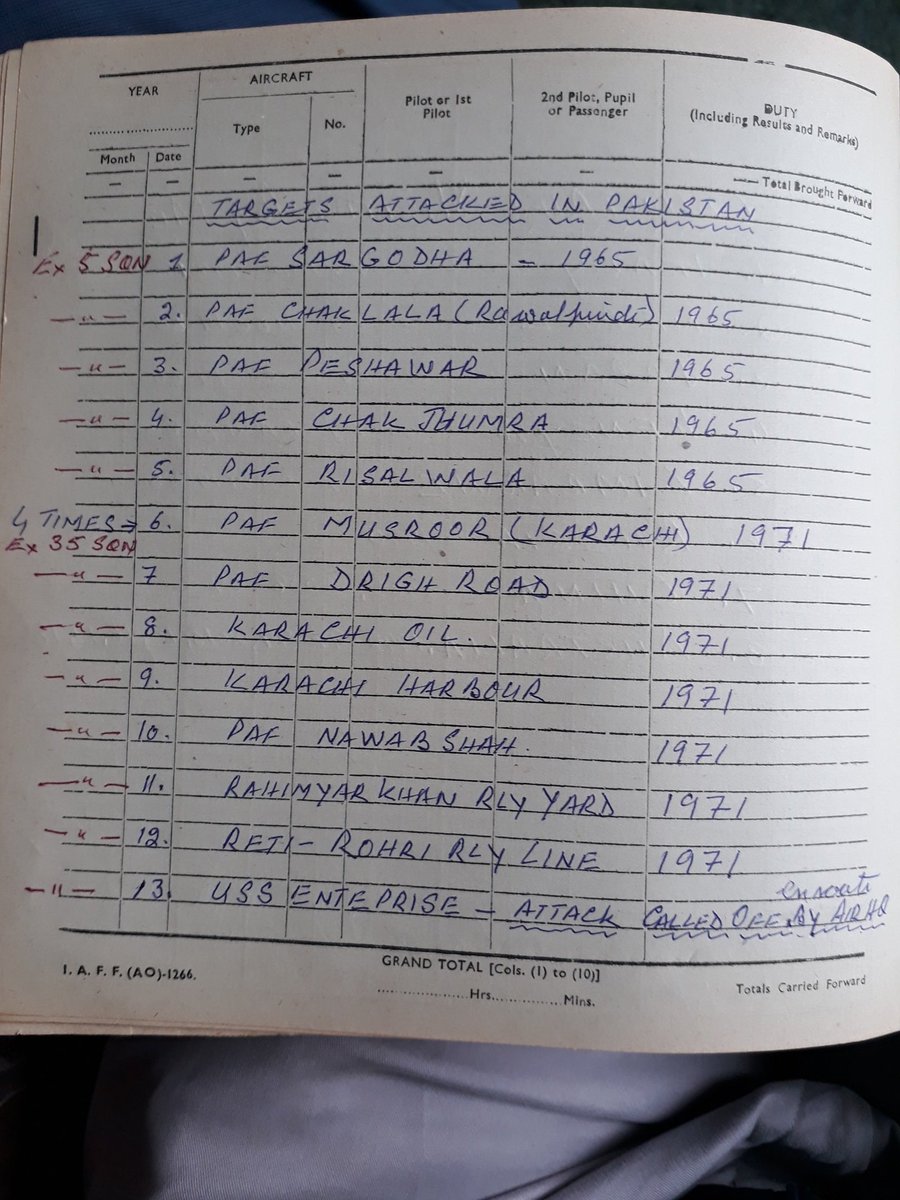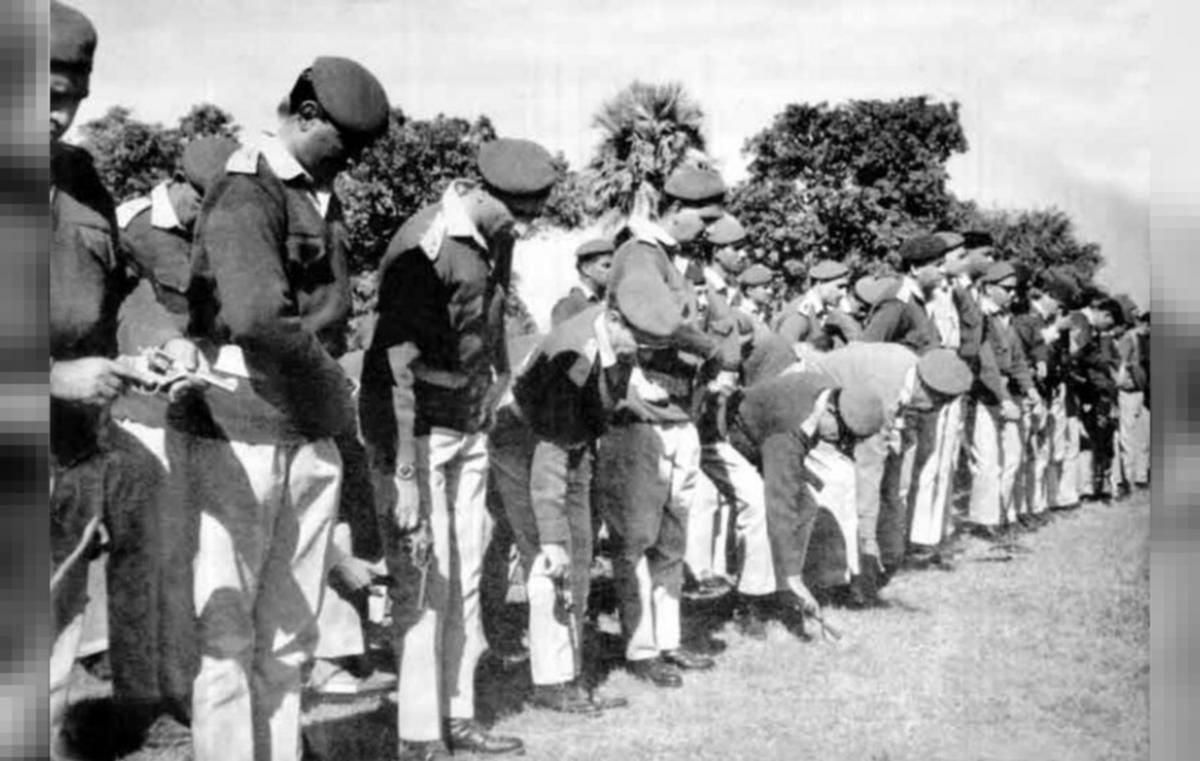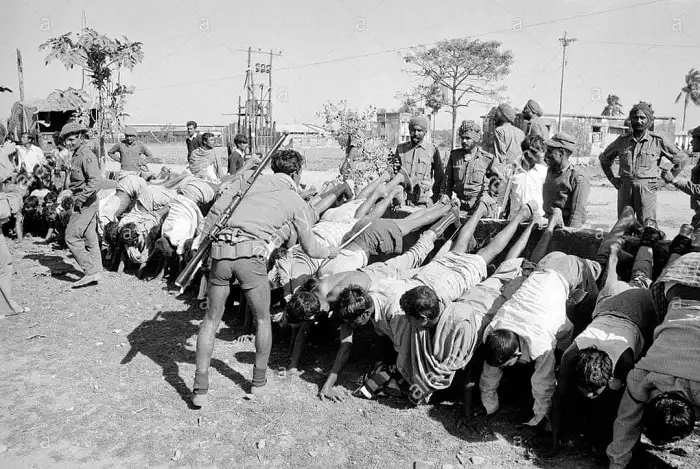On December 13, Pakistan’s Ambassador to the US, General Raza, requested the US Seventh Fleet deployment in the Bay of Bengal as well as in the North Arabian Sea to deter further attacks by the Indian Navy. This proposal was repeated by the President of Pakistan to Nixon, stating: “The Seventh Fleet does not only have to come to our shores but also to relieve certain pressures which (we are) not in a position to cope with. (We) have sent a specific proposal…about the role the Seventh Fleet could play at Karachi which, I hope, is receiving your attention.”
(This excerpt from the conversation between Nixon and his assistants is from December 15, 1971, 8:45-11:30 am.)
Kissinger: The Russians came in yesterday giving us their own guarantee that there would be no attack on West Pakistan.
Nixon: A letter from Brezhnev.
Kissinger: An addition – an explanation of the letter to – of Brezhnev saying, they, the Soviet Union, "guarantees there will be no military action against West Pakistan". So we are home, now it’s done. It’s just a question what legal way we choose.
Nixon: Well, what the UN does is really irrelevant.
Kissinger: Well, it’d be, the bastards (he’s referring to the Indians), of course, have broken promises before. It’d be better to have it on public record. We might be able to do it in an exchange of letters between Brezhnev and you. That is made public, in which you say you express your concern, and he says he wants to assure you.
Nixon: Well, what does that do now to the Chinese?
Kissinger: Oh, the Chinese would be thrilled if West Pakistan were guaranteed.
Based on an Indian intercept of US communications, the Ministry of External Affairs (MEA) prepared a six-page note, which said: “The assessment of our embassy reveals that the decision to brand India as an 'aggressor' and to send the 7th Fleet to the Bay of Bengal
was takenpersonally by Nixon.”
The MEA felt that “the bomber force aboard the Enterprise had the US President's authority to undertake bombing of Indian Army's communications, if necessary”.
Following this assessment, India secretly activated a provision in the Indo-Soviet Friendship Treaty, according to which either party would come to the defence of the other.
A Russian naval task force from the Pacific Fleet based in Vladivostok, consisting of a cruiser, a destroyer and two attack submarines under the command of Admiral Vladimir Kruglyakov intercepted Task Force 74.
Sebastien Roblin writes in
War is Boring that Kruglyakov revealed in a Russian TV
interview about “encircling” the task force, surfacing his submarines in front of the Enterprise, opening the missile tubes and “blocking” the American ships.
Two further task groups that arrived in the Indian Ocean on December 18 and 26. These Soviet naval assets continued to shadow the TF 74 off Sri Lanka until its return passage to the Pacific theatre on January 8, 1972.”
In addition, 12 other Soviet naval ships were present in the Indian Ocean.
The page shows Indian willingness to attack the US to denfend its objective, only the USSR arrived in time and IAF did not have to proceed with the hostile action.
THE US BACKED DOWN and Bangladesh was free.
SO if anyone soiled the "dhoti", it was US and paksitan who ended up surrendering 73,000 POW.













